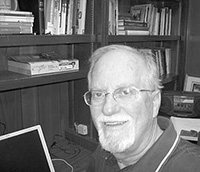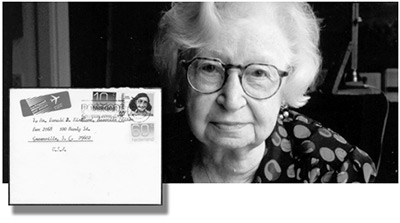The news, although it was not unexpected, deeply saddened me. The headline read: “Miep Gies, Protector of Anne Frank, Dies at 100.”
 Don Kirkland
Don KirklandGies, a Christian, was the last survivor among the protectors of Anne Frank, and she preserved the diary that, according to the New York Times, “endures as a testament to the human spirit in the face of unfathomable evil.”
An unimposing woman physically — she stood barely over five feet tall — Gies died on Jan. 11 in Amsterdam after suffering a fall in December.
Gies, her husband and three others hid Anne Frank, her father, mother, older sister and four other Dutch Jews for 25 months in Nazi-occupied Amsterdam. When the Gestapo raided the hiding place in the annex to Otto Frank’s business office — where Gies was employed — on Aug. 4, 1944, and arrested the eight occupants, Anne’s diary and her writings were left scattered in the annex. Gies, who was spared arrest probably because of her Austrian heritage, later rushed to the annex and gathered up the writings. She intended to give them to Anne later. Only Otto Frank returned from the concentration camps, and Gies gave him the diary and other writings.
“The Diary of Anne Frank” made publishing history and continues to be read by students and others interested in that tragic era in world history.
I had not read the diary when, in 1987, I purchased a copy of a memoir by Gies entitled “Anne Frank Remembered.” It told of activity within the secret annex, which was behind the business owned by Frank, as well as events in Amsterdam. The efforts by Gies and the others to provide for the needs of a family in hiding were nothing short of heroic, not to mention dangerous.
After reading her book, I wrote to Miep Gies to express my appreciation for her book and my admiration for her. I also wrote to express my gratitude to her for the risky endeavor that saved the lives of the Franks — at least for a time — while showing little regard for her own life.

I was surprised but overjoyed to receive a letter from her. She thanked me for my kind letter. “It touched me,” she wrote, and continued, “My husband and me, we never had the intention to write a book about our experiences in the war. We always said the diary of Anne is important; we only did our human duty, helping people who need help.”
I have visited the Anne Frank house on several occasions while passing through Amsterdam. It is a disturbing and unsettling experience to recall what happened there, and why. It is a reminder of man’s inhumanity to man, but also the triumph of the human spirit.
It also is a vivid reminder — and one that comes to mind with gratitude to God — of a little Dutch woman who, because she valued the lives of others more than she did her own, stared down the threat of death and did the right thing. Despite her constant disclaimers to the title of hero, Miep Gies was one.